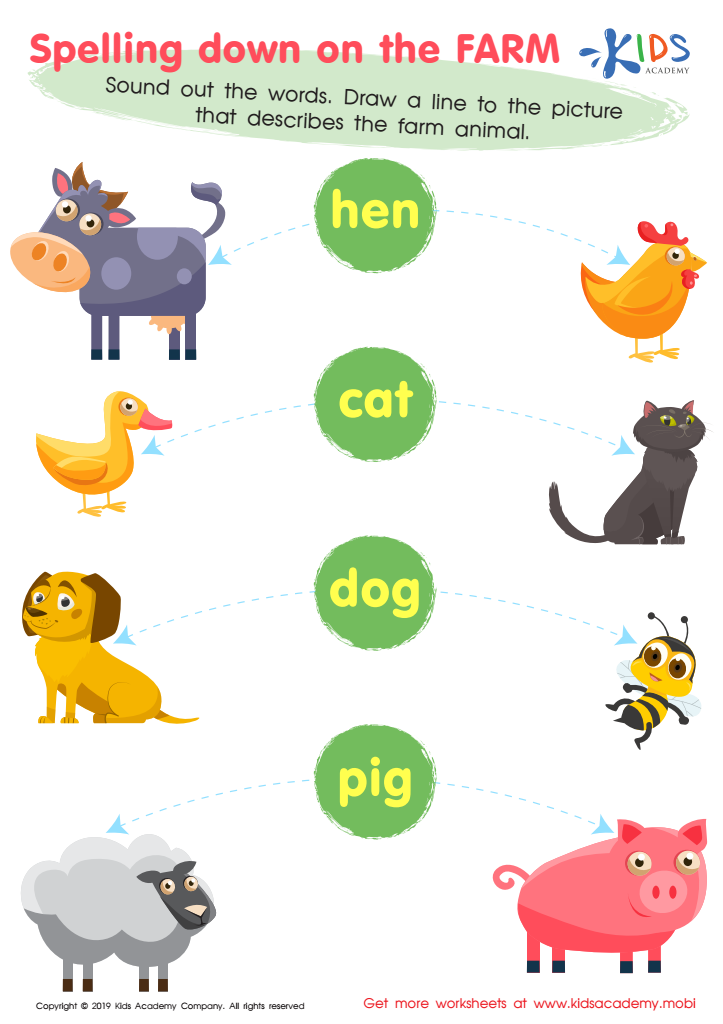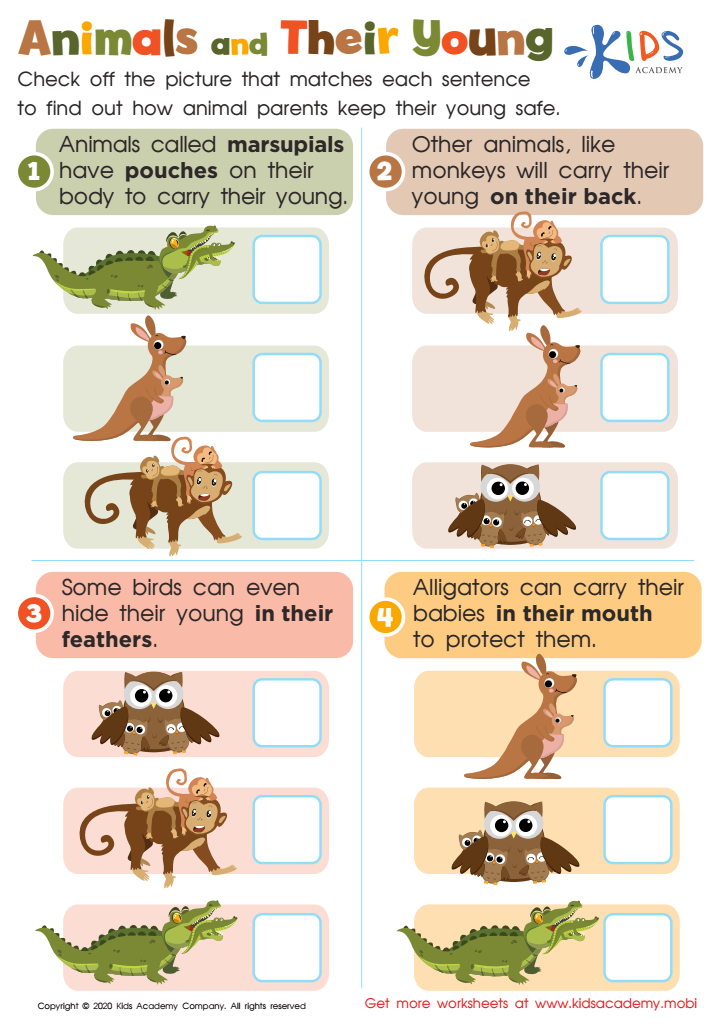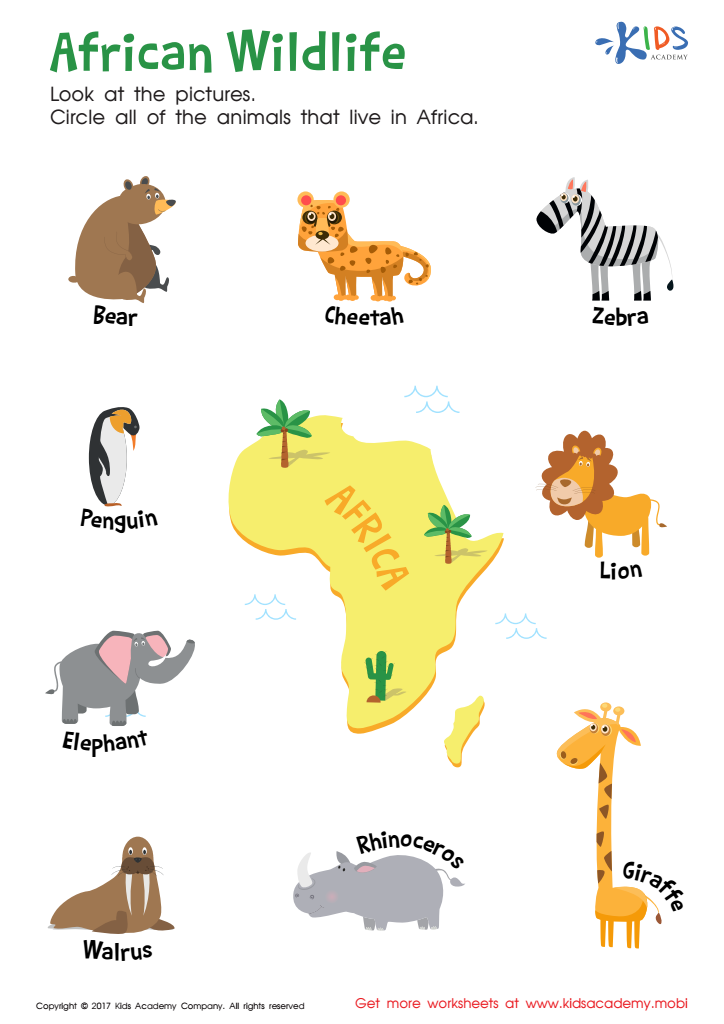Animal recognition Normal Science Worksheets for Ages 4-8
4 filtered results
-
From - To
Introducing our "Animal Recognition Normal Science Worksheets for Ages 4-8"—designed to engage young learners through exciting animal-themed activities. These printable worksheets from Kids Academy foster keen observational skills, enhance vocabulary, and teach fascinating animal facts. Tailored for children aged 4-8, the worksheets cover various aspects of animal recognition, promoting cognitive development and scientific curiosity. Ideal for both classroom settings and home learning, these fun and educational resources support early childhood science education, making learning about animals an adventure. Inspire your little ones to discover and appreciate the amazing diversity of the animal kingdom with our expertly crafted worksheets.


Sorting Animals in 3 Groups Worksheet


Spelling Down on the Farm Worksheet


Animals and Their Young Worksheet
Introducing children aged 4-8 to animal recognition through normal science is incredibly important for their cognitive and emotional development. For one, recognizing different animals helps in honing their observational skills, as they learn to identify patterns, shapes, colors, and sizes. In this early developmental stage, these skills are crucial for broader academic success and overall cognitive growth.
Moreover, understanding animals and their environments fosters empathy and a sense of responsibility towards nature. By learning about animal habitats, diets, and behaviors, young children begin to appreciate biodiversity and the importance of conservation even from a tender age. These early lessons can inspire lifelong respect for our planet and its inhabitants, encouraging sustainable practices as they grow older.
Pedagogically, animal recognition science aligns well with other areas of learning, including language (through new vocabulary like species names), literacy (by reading stories about animals), and even numeracy (by counting animal legs, wings, etc.). Integrating these subjects makes learning more engaging and holistic.
Furthermore, many children are naturally curious about animals, leveraging their innate interests to instill a love for learning also helps to build a solid foundation for scientific thinking. Interactive activities, like nature walks, educational videos, and preschool animal games, further cement this knowledge in fun, engaging ways.
In summary, animal recognition normal science is pivotal for a comprehensive education, fostering cognitive skills, empathy, and an integrated learning experience that stimulates curiosity and respect for the natural world.

 Assign to My Students
Assign to My Students




















